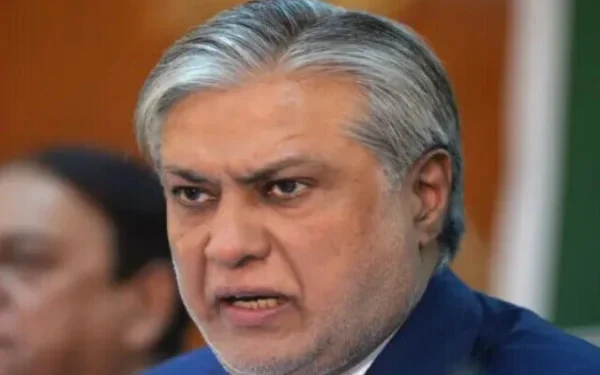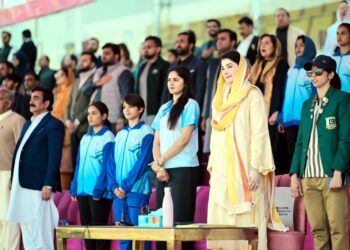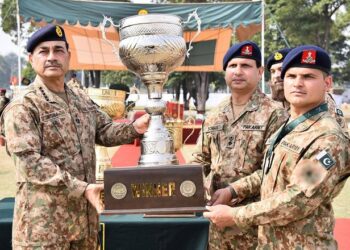Deputy Prime Minister Ishaq Dar hails the trip as productive and strategically beneficial for Pakistan’s global standing, especially on critical issues like Kashmir and Palestine.
Deputy Prime Minister and Foreign Minister of Pakistan, Ishaq Dar, has concluded what he described as a highly successful diplomatic visit to the United States and the United Nations, returning to Islamabad with a renewed sense of optimism regarding Pakistan’s international partnerships and diplomatic standing.
Speaking to the Pakistani media before his departure from New York, Dar expressed satisfaction over the outcomes of the visit, calling it a “success in every respect.” His engagements during the trip included high-level meetings, multilateral participation in the UN Security Council, and vocal support for long-standing causes such as the Kashmir and Palestine issues.
Pakistan’s Consistent Advocacy for Kashmir and Palestine
One of the most prominent aspects of the Deputy Prime Minister’s remarks was Pakistan’s unwavering commitment to advocating for the rights of oppressed peoples, particularly in Indian-occupied Kashmir and Palestine. Dar emphasized that Pakistan has consistently raised the issues of Kashmir and Palestine at international forums, especially the United Nations Security Council (UNSC).
“Pakistan has always supported the right of self-determination for the people of Kashmir and Palestine. Our stance is rooted in the principles of international law, human rights, and justice,” Dar stated.
During his address at the UN, Dar reaffirmed Pakistan’s diplomatic and moral support for both causes. He noted that Pakistan’s efforts have been instrumental in keeping these issues alive in the global consciousness, despite geopolitical challenges.
He further expressed hope that more countries will soon recognize the State of Palestine, a development that would significantly boost the cause of the Palestinian people in their struggle for statehood.
Key Meeting with US Secretary of State Marco Rubio
A major highlight of the trip was a detailed bilateral meeting between Deputy Prime Minister Ishaq Dar and US Secretary of State Marco Rubio, held at the US State Department in Washington, D.C.
According to diplomatic sources, the meeting covered a wide range of strategic issues, including:
- Regional security in South Asia and the Middle East
- Counterterrorism collaboration
- Economic and trade cooperation
- Climate change and sustainable development
- Human rights and democratic values
- Afghanistan’s post-conflict reconstruction and stability
The two sides reportedly discussed strengthening bilateral relations and building on shared interests, particularly in the areas of regional stability, economic growth, and global peacekeeping.
Dar also highlighted Pakistan’s efforts to stabilize the region, especially its role in facilitating peace talks in Afghanistan and maintaining constructive relations with both China and the United States, despite their growing global rivalry.
In addition to the in-person meeting, a telephonic conversation was also held between the two leaders, reinforcing their commitment to maintain open channels of communication and address mutual concerns through diplomacy.
Chairing the UN Security Council: A Diplomatic Milestone
In a significant development for Pakistani diplomacy, Deputy Prime Minister Ishaq Dar chaired three separate meetings of the UN Security Council during his visit. Pakistan is currently serving as a non-permanent member of the Security Council, and Dar’s active participation is being viewed as a symbol of Pakistan’s rising diplomatic profile.
One of the most notable outcomes of this leadership was the unanimous passage of an important resolution presented by Pakistan. While the specific contents of the resolution have not been publicly disclosed, sources within the UN indicated that it dealt with themes such as peacekeeping reform, equitable development, and conflict prevention in the Global South.
Chairing Security Council sessions not only gave Pakistan a visible leadership role on the international stage but also provided an opportunity to shape discussions around global peace and security from a Global South perspective. Pakistan emphasized the importance of multilateral diplomacy, equitable international governance, and inclusive global development.
Building Support for Multilateralism and Global Peace
Ishaq Dar used his presence at the UN to reiterate Pakistan’s firm commitment to multilateralism. He spoke at several side events and high-level panels, stressing that global challenges such as climate change, food insecurity, pandemics, and terrorism require collective international efforts.
During his engagements, Dar made several key points:
- The global South must have a greater voice in international decision-making forums.
- Developed nations should honor their climate finance commitments, especially towards vulnerable countries like Pakistan, which face disproportionate climate impacts.
- Peacekeeping missions need better resources and training to be effective and impartial.
- Diplomatic efforts must be intensified to address ongoing conflicts in Ukraine, the Middle East, and Africa.
He also met with representatives from several UN agencies, including UNDP, UNICEF, and the World Food Programme, to discuss Pakistan’s development challenges and potential partnerships.
Engaging the Pakistani Diaspora and International Media
Another important aspect of Dar’s trip was his outreach to the Pakistani diaspora in the US. He attended community events in New York and Washington, D.C., where he updated overseas Pakistanis on the government’s economic reform plans, efforts to stabilize the rupee, and steps being taken to encourage foreign investment.
Dar encouraged the diaspora to remain engaged with Pakistan’s development and to play a more active role in projecting a positive image of the country abroad. He acknowledged the challenges Pakistan faces but emphasized that with strategic vision, economic reforms, and diplomatic engagement, the country is on the path to recovery and global relevance.
In parallel, Dar also interacted with representatives from international media outlets, answering questions about Pakistan’s foreign policy direction, the Kashmir conflict, human rights issues, and regional security dynamics. His responses were described as measured, firm, and aligned with international norms.
A Broader Context: Pakistan’s Foreign Policy Under Scrutiny
The visit comes at a time when Pakistan is actively reconfiguring its foreign policy strategy. With geopolitical tensions rising globally—particularly with regard to the US-China rivalry, instability in the Middle East, and renewed tensions between India and Pakistan—Islamabad is seeking to position itself as a responsible, neutral, and constructive global actor.
Analysts say Ishaq Dar’s visit reflects a concerted effort to reset diplomatic ties with the West while maintaining strong relationships with China, the Gulf countries, and the Global South. The trip is also seen as a move to reassure international institutions, especially in the wake of Pakistan’s ongoing negotiations with the International Monetary Fund (IMF) and its efforts to attract foreign direct investment.
Conclusion: A Step Forward for Pakistan on the Global Stage
In summary, Deputy Prime Minister Ishaq Dar’s visit to the United States and the United Nations was marked by diplomatic vigor, strategic engagement, and renewed global outreach. From bilateral talks with the US to leading discussions at the UNSC and advocating for global justice, the trip has been described as a comprehensive success for Pakistan’s foreign policy objectives.
Dar’s proactive diplomacy, visible leadership, and commitment to pressing global concerns—including Kashmir, Palestine, regional peace, and sustainable development—signal Pakistan’s intent to take a more assertive role on the international stage.
As Pakistan continues to navigate economic and security challenges at home, such diplomatic successes serve as critical tools for improving international perception, securing support, and shaping a better future for the nation.
























